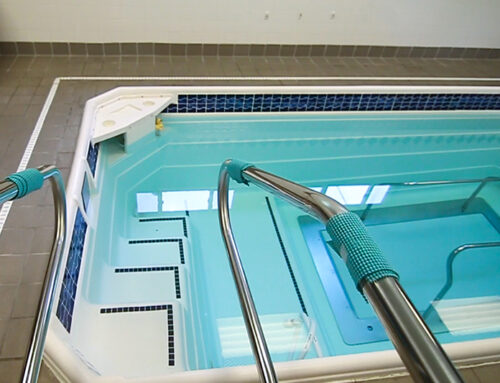As a physical therapy practice, we understand the importance of treating not just the physical symptoms of injury or illness, but also the mental and emotional aspects that can impact overall well-being. That’s why we incorporate aquatic therapy into our treatment plans – not only does it provide physical benefits, but it can also have a powerful impact on mental health.
Here are some of the ways that aquatic therapy can promote emotional well-being:
- Reduced Stress and Anxiety
Water has a natural calming effect on the body and mind. When we’re in the water, we experience a weightlessness and sense of freedom that can help us let go of stress and tension. The sound of water can also be soothing and provide a break from the noise and chaos of daily life. As a result, aquatic therapy can help reduce stress and anxiety, leading to a greater sense of calm and relaxation.
- Improved Mood
Research has shown that exercise can have a positive impact on mood, and aquatic therapy is no exception. When we exercise, our bodies release endorphins, which are natural feel-good chemicals that can boost mood and reduce feelings of depression. Additionally, the physical benefits of aquatic therapy, such as improved range of motion and cardiovascular function, can lead to a sense of accomplishment and confidence, further improving mood.
- Increased Social Interaction
Participating in aquatic therapy can also provide a sense of social connection and support. Many aquatic therapy sessions are done in group settings, providing an opportunity for patients to connect with others who are going through similar challenges. This can lead to a sense of camaraderie and social support, which can be beneficial for overall mental health.
- Boosted Self-esteem
For individuals with injuries or disabilities that limit their mobility on land, aquatic therapy can provide a sense of freedom and independence. Being able to move more freely in the water can be empowering and boost self-esteem, leading to improved mental health.
- Unique Sensory Experience
Finally, the sensory experience of being in the water can be therapeutic for many individuals. The feel of the water on the skin and the sound of the water can be calming and soothing, providing a break from sensory overload or anxiety. This can be particularly beneficial for individuals with sensory processing issues.
In conclusion, aquatic therapy is not just a powerful tool for physical rehabilitation – it can also have a significant impact on mental and emotional well-being. By reducing stress and anxiety, boosting mood, providing social support, boosting self-esteem, and providing a unique sensory experience, aquatic therapy can promote emotional wellness and improve overall quality of life. At our physical therapy practice, we are committed to providing comprehensive care that addresses all aspects of our patients’ health and well-being, and we believe that aquatic therapy is an important part of that approach.




